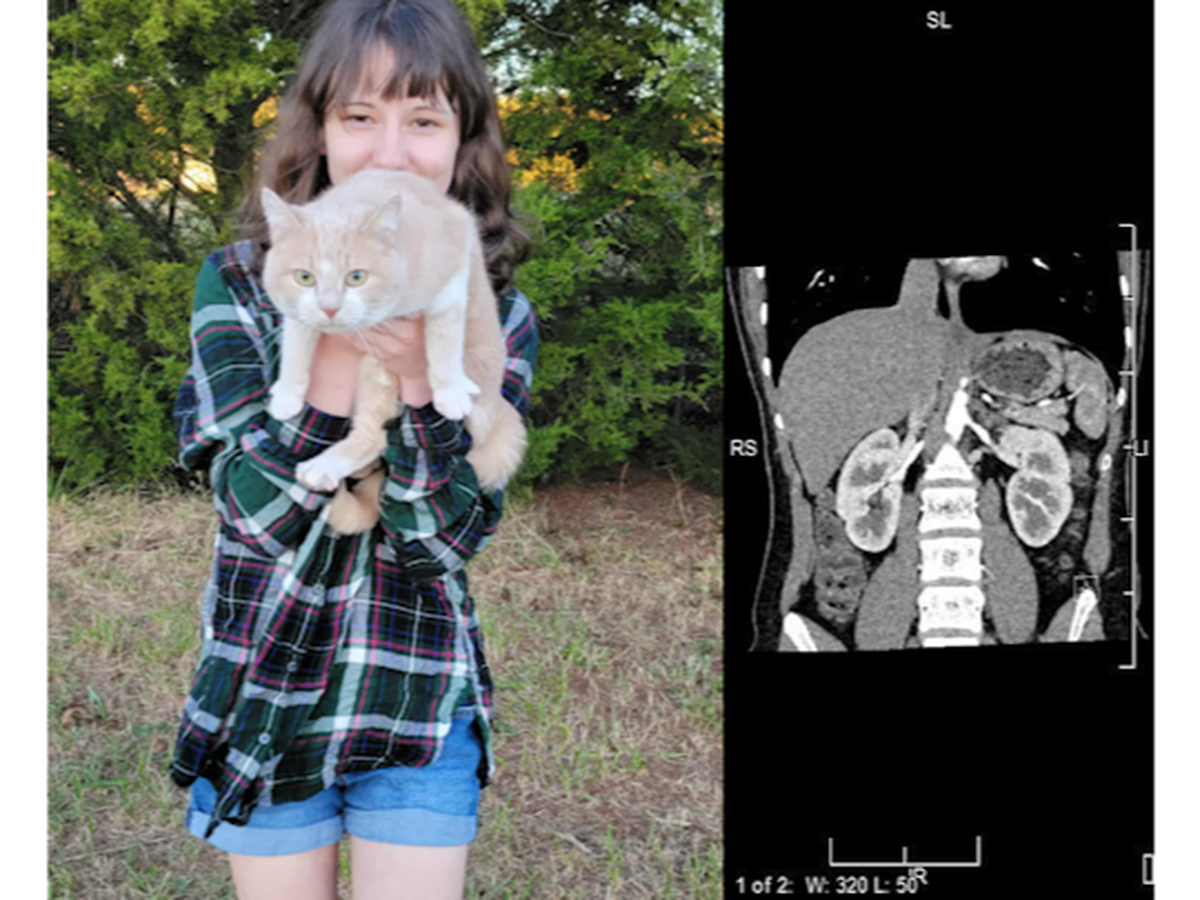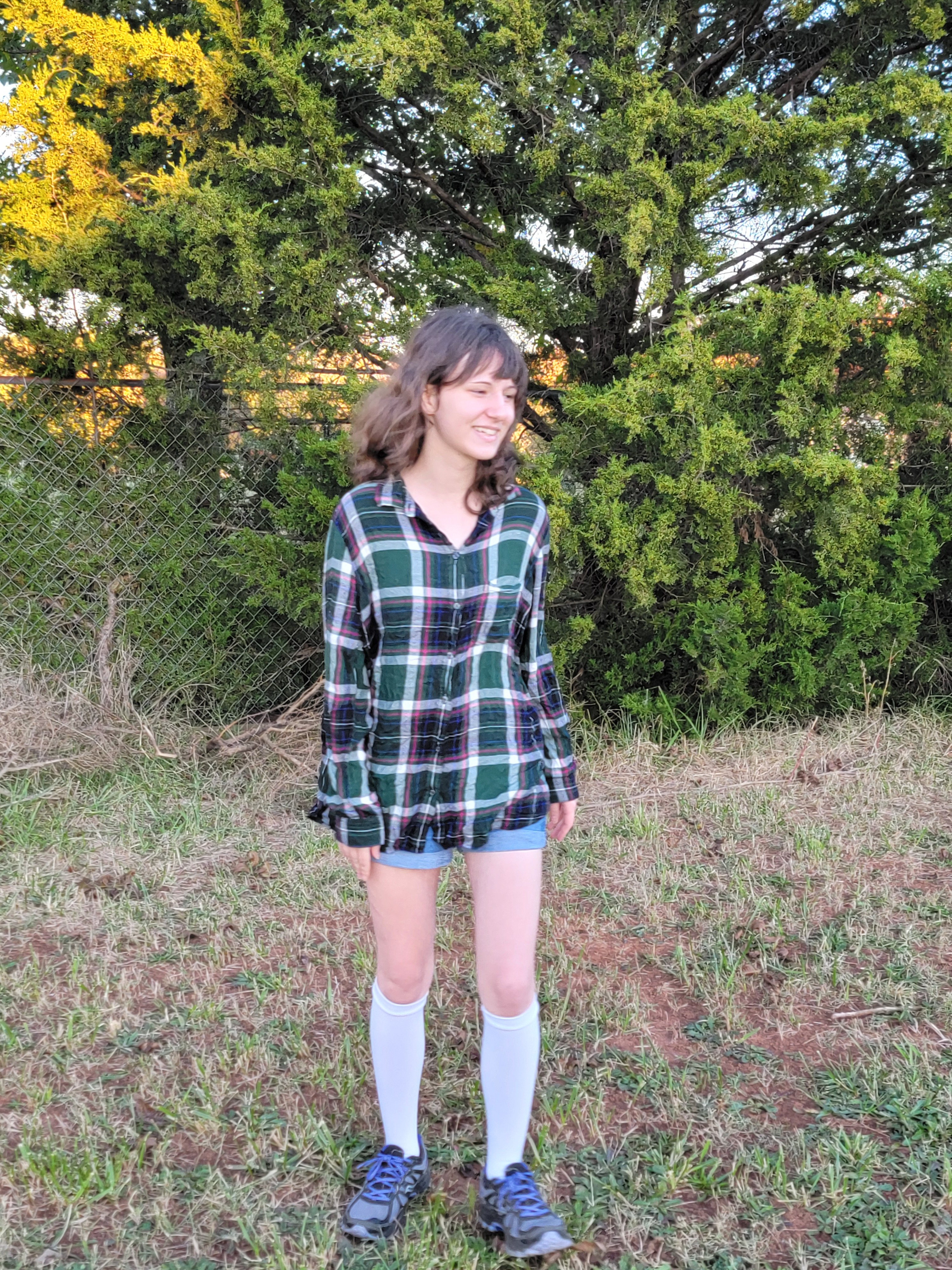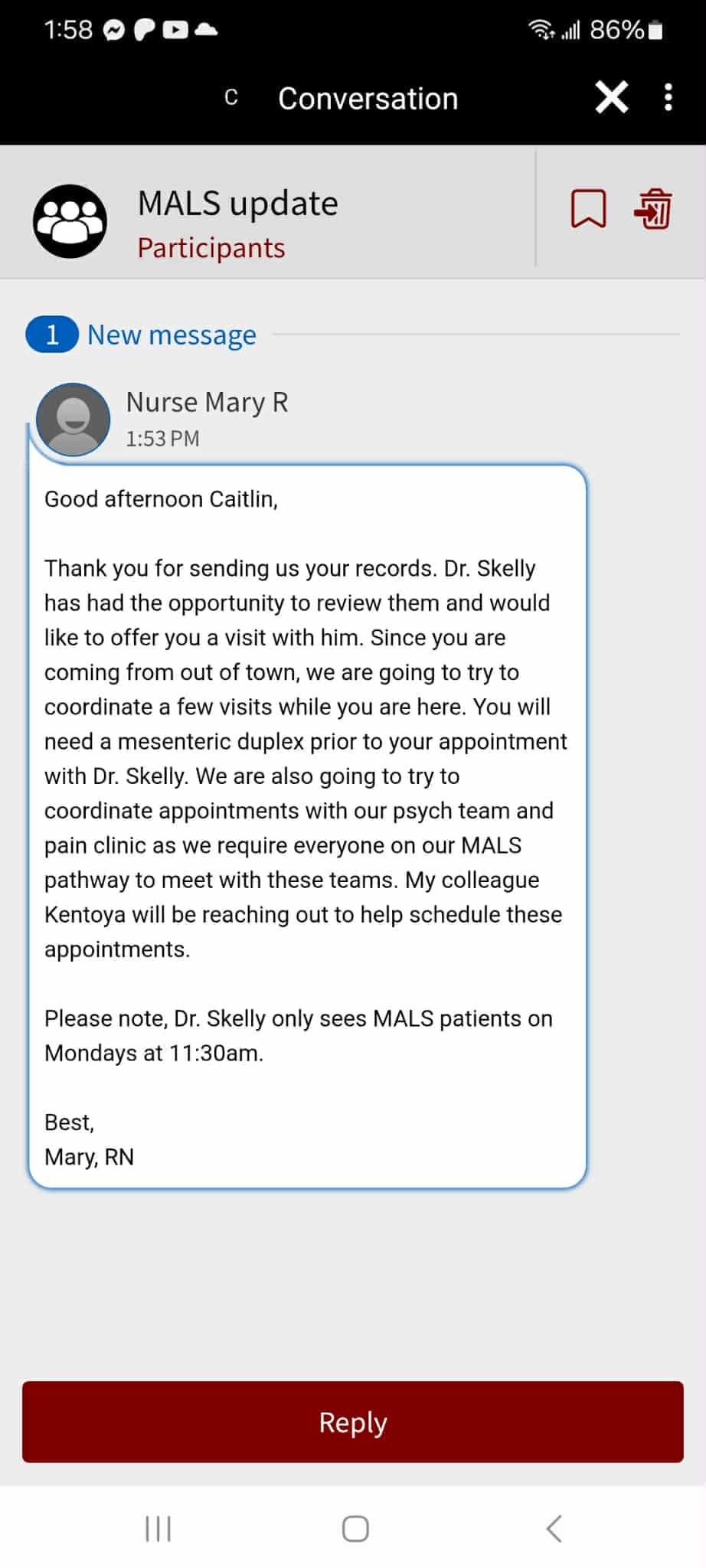Caitlin Rogers needs to go to Chicago for critical vascular surgery.
Caitlin is scheduled to meet with Dr Christopher Skelly , Medical Director of the Noninvasive Vascular Lab at UChicago Medicine, on December 8th.
Caitlin was referred to UChicago after the results of her abdominal CT showed this:
"During inspiration, with the diaphragm depressed, there is increased angulation of the proximal celiac axis with significant narrowing of approximately 70 to 90% best seen on coronal imaging series 17 image 119. On the corresponding expiration images, series 8 image 110, the celiac axis remains mildly narrowed, although not as significantly as on the inspiratory images."
In plain language, every time Caitlin breathes in, her celiac artery is compressed. The severity of that compression ranges from 70 to 90% (depending on how deeply Caitlin inhales).
The celiac artery is responsible for supplying fresh, oxygenated blood to the stomach, liver, spleen, pancreas, and other organs. Those organs have their supply of oxygenated blood throttled down every time Caitlin breathes in. Organs don't do well when their supply of oxygenated blood is restricted. Imagine driving a car with a fuel line that crimped every time you inhaled, or trying to water your garden with someone stepping on the hose every time you breathed in. Now, imagine trying to manage a body where multiple vital internal organs have their blood flow restricted every time you inhale. Caitlin needs surgery to address her severe celiac artery compression and prevent long-term organ damage.
What is it?
Celiac artery compression is also known as Median Arcuate Ligament Syndrome (MALS), a condition in which the celiac artery (which connects the aorta to the stomach, liver, spleen, pancreas, and other organs in the abdomen) is compressed, restricting blood flow to these vital organs.
When the celiac artery is compressed, the stomach, liver, spleen, and upper intestine all get reduced blood flow (especially after meals). This is especially difficult after eating, because your digestive organs demand more blood when digesting food. But because the artery is compressed, they can't get what they need.
Patients with MALS often report feeling full after a few bites because the stomach isn't contracting normally, blood flow is insufficient, and in some cases, there may be intermittent gastric paralysis. It feels like it's just "sitting there."
Reduced celiac blood flow also impairs gastric emptying, motility, and bile flow. People with MALS often describe feeling immediately sick when they start eating, with waves of nausea that don't match how much food they actually ate. Some may involuntarily vomit bile or undigested food later.
This matters because eating increases blood flow demand in the gut, which causes sudden ischemic pain (pain due to lack of blood flow) and with it, a learned association that food = pain. Every meal comes with questions like "Is this worth the pain?" and "If I eat now, will I be useless for the next 2 hours?" or even "Can I study or do my chores after eating?" because digesting with compromised blood flow can feel physically exhausting. Many patients report post meal fatigue and irritability.
This creates constant negotiation with food. Restaurants, family dinners, dates? They all become stressful because symptoms hit suddenly, pain isn't visible, and because it's difficult to explain why you don't feel like eating. It can feel like something cinched around a nerve or like getting a deep cramp in an organ you didn't know you had. As a flare builds up, it can escalate into a stabbing, burning, gnawing ache that hurts even when you aren't hungry. This pain can spread to the back, the left flank, under the ribs, and sometimes even to the chest. It hurts so bad, many patients report hunching because standing up straight only makes it worse.
What makes MALS flares unique, however, is that when the pain peaks (called the ischemic phase), people often feel a cold, shaky feeling, almost like low blood sugar. Nausea comes and goes in pulses. Your skin gets sweaty or clammy and the stomach just feels almost like it's shutting down. During a flare, heavy breathing makes everything worse, so you end up taking short, shallow breaths, because talking too much, twisting, or coughing makes your diaphragm cramp harder.
Not everyone with MALS vomits after eating, but the nausea during a flare feels distinct; bitter, bile-tasting saliva, rolling, wave-like surges, retching without actually vomiting, and feeling full, even if you barely ate. This phase often lasts longer than the acute pain.
After the peak passes (often 20-30 minutes), people feel drained, shaky, mildly nauseated. They may be bloated or distended in the upper abdomen, which is tender to the touch, and are unable to eat for hours. This is the post-ischemia dump, which is almost like recovering from a gallbladder attack or pancreatitis flare.
It feels like someone stuck a knife under your ribs and twisted it. Because it's often tied to meals, people often develop vigilance around food, anxiety before meals, reluctance to eat in public, and a sense of dread if they feel early fullness. Some may start unconsciously skipping meals altogether. However, sometimes people can experience a flare even on an empty stomach.
Why Chicago?
After seeing multiple specialists, Atlanta vascular surgeon Dr. Poindexter of Georgia Vascular Specialists ordered an abdominal ultrasound for Caitlin. Based on those results, he then ordered an abdominal CT scan. When Caitlin and her mother met with Dr. Poindexter to discuss the results of Caitlin's CT scan, Dr. Poindexter noted that Caitlin's celiac artery compression is both severe and unique in shape. This combination means that there were few vascular surgeons in the southeast specialized enough to deal with it, and none that had experience operating on someone with Caitlin's connective tissue disorder (Ehlers-Danlos Syndrome) and other vascular compressions (left leg iliac vein compression). As a result, Dr. Poindexter and Caitlin's primary care physician have recommended that Caitlin undergo surgery at one of the few pediatric hospitals with a dedicated MALS team. Comer Children's Hospital is part of UChicago Medicine.
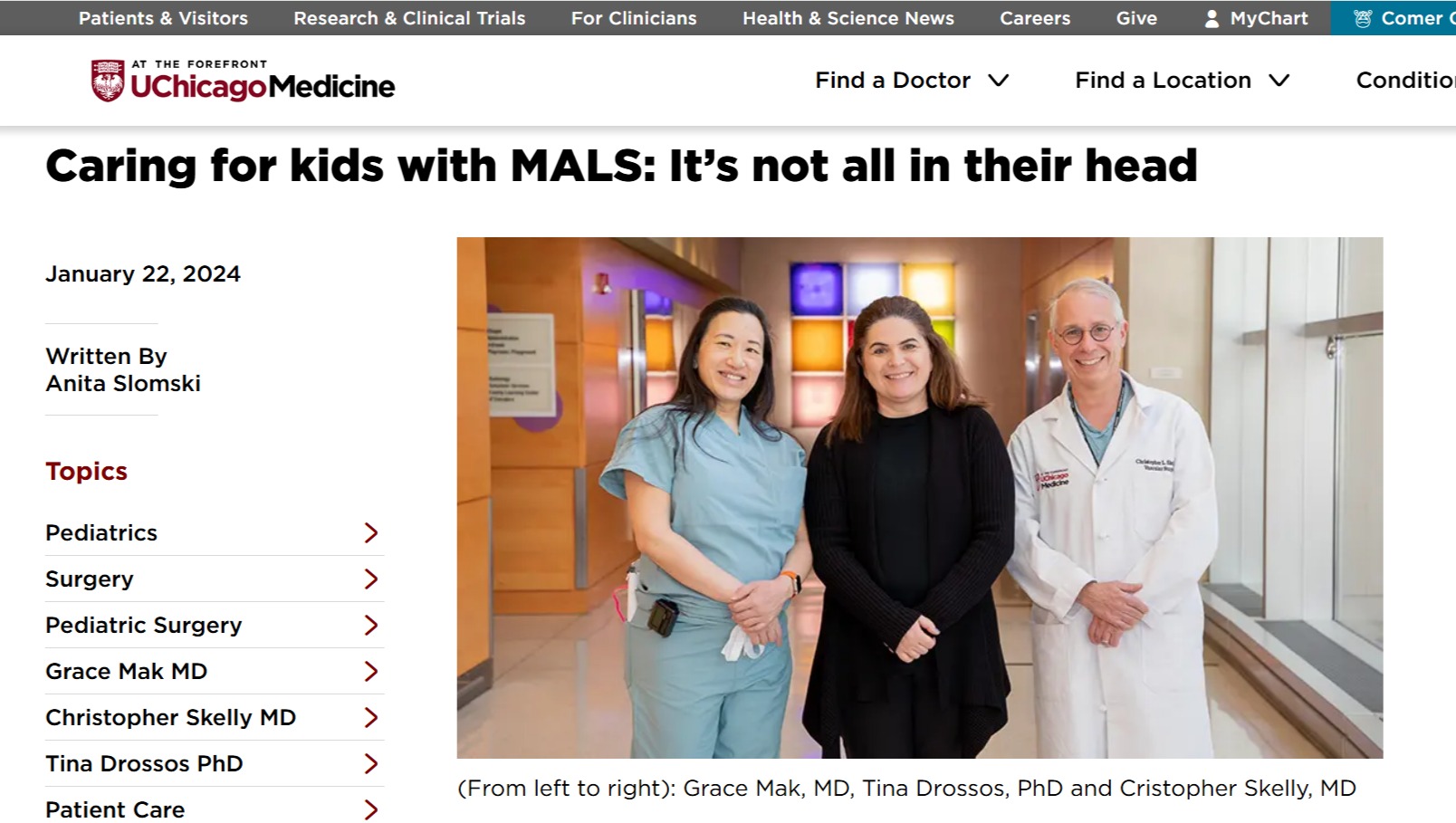
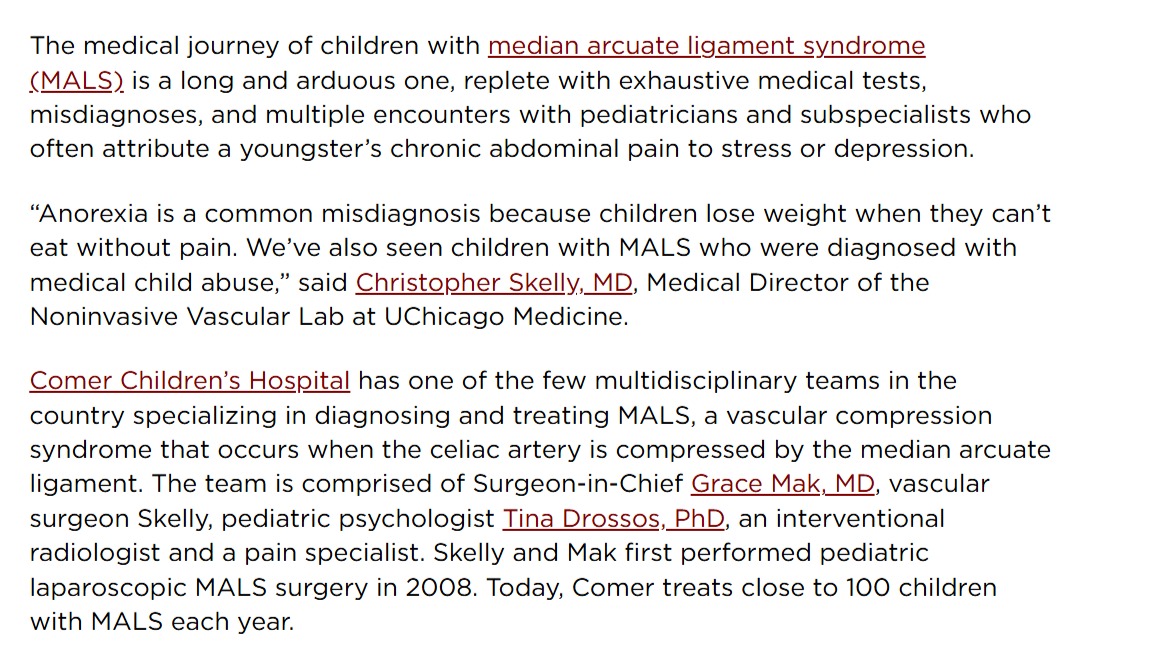
Unfortunately, Chicago is not in South Carolina, so Caitlin (along with her mother Katie, and one additional support person) needs to travel to Chicago twice. The first trip, on December 8, 2025, will be to meet the surgical team and conduct pre-surgical assessments, and the second, about a month later, will be for the actual surgery. Although the medical costs of this care will be (mostly) covered by insurance, the trips themselves are not, which is why Caitlin needs your help to receive this critical treatment and live a long, healthy life.
We're asking for $9,800 based on this cost breakdown:
Medical costs:
$2,500 - Insurance out-of-pocket max, as the surgery will be after the new policy year in 2026
Trip 1
[5 days, 4 nights]
$750 - Three round-trip flights to Chicago ($250 per person for Caitlin, Katie, and support person)
$1,200 - Four-night stay in local hotel ($300 per night)
$750 - Food, estimated at $50 per person per day
$500 - Incidental costs (transit, etc)
---------------------------
$3,200 - TOTAL
Trip 2
[7 days, 6 nights]
$750 - Three round-trip flights to Chicago ($250 per person for Caitlin, Katie, and support person)
$1,800 - Six-night stay in local hotel ($300 per night)
$1,050 - Food, estimated at $50 per person per day
$500 - Incidental costs (transit, etc)
---------------------------
$4,100 - TOTAL
Your donations will help Caitlin access this surgery, one that will help Caitlin live a healthy life!
